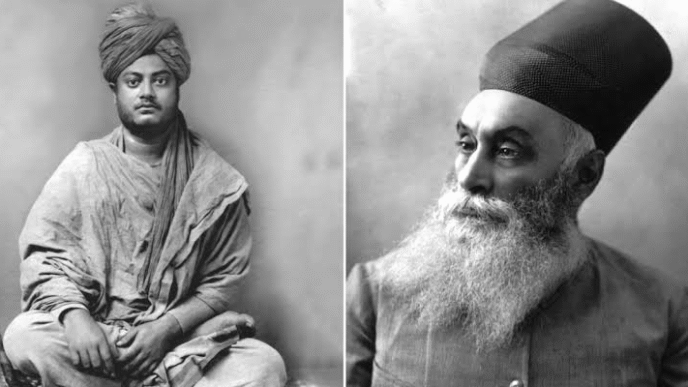When you think of historical ties between India and Japan, what comes to mind? Cultural exchanges? Buddhism? Trade routes? What if we told you that, once upon a time, India was known in Japan as “Tenjiku”, meaning Land of Heaven?
Yes, it’s true — long before the era of globalisation, modern diplomacy, and rapid communication, India had already earned a divine reputation in the East. But how did this poetic title come to be? And what does it reveal about the deep-rooted connection between two ancient civilizations?
What is “Tenjiku”?
The term “Tenjiku” (天竺) was how the Japanese referred to India in classical times. Derived from the Chinese pronunciation Tianzhu (itself a transliteration of the Sanskrit “Sindhu,” meaning river), the word travelled through cultures and languages, finally becoming Tenjiku in Japan. The meaning? The Land of Heaven.
But why would India be called such a glorious name? Was it simply admiration, or did something deeper spark this title?
The Spiritual Highway: Buddhism and the Bridge Between Nations
To understand this, we need to take a step back into the corridors of time — around the 5th to 7th centuries CE, when Buddhism was spreading across Asia. Originating in India, Buddhism travelled along the Silk Road, making its way to China, Korea, and finally Japan. With it came not just teachings, but an entire cultural and spiritual identity linked back to the sacred land where the Buddha once walked — India.
For Japanese monks and scholars, India wasn’t just a country; it was a holy pilgrimage, the source of wisdom, the spiritual homeland. Monks like Ennin and Kūkai studied Buddhist scriptures that traced their roots to India. Tales of Bodhisattvas, Sanskrit chants, and stories of enlightenment painted India as a mystical paradise — a heaven on Earth. Hence, Tenjiku.
Can you imagine a place so revered that it’s believed to hold the blueprint of the cosmos?
Art, Language, and Respect
The influence of Tenjiku didn’t stop at religious philosophy. It seeped into art, language, and literature. Ancient Japanese texts often referenced Tenjiku with reverence. It was portrayed as a land of scholars, sacred mountains, and miraculous beings.
Indian deities like Benzaiten (derived from Saraswati) and Daikokuten (linked to Shiva) became part of Japanese folk culture and Shinto-Buddhist worship. Sanskrit characters were integrated into sacred calligraphy. Even today, you’ll find statues and temples in Japan that echo the style and spirituality of India.
Isn’t it beautiful — how respect and curiosity can turn geography into mythology?
The Journey of Names: From Tenjiku to India
Of course, with time, names evolve. As global interactions increased, and with the rise of modern nations and new languages, “Tenjiku” slowly gave way to “Indo” (India) in Japanese usage. But the old name still lingers — especially in classical literature, historical texts, and cultural memory.
So, is Tenjiku just a forgotten label? Or is it a reminder of how perception shapes our understanding of place?
A Cultural Bond That Still Lives
Even today, the spiritual and cultural ties between India and Japan remain strong. Japanese tourists flock to Bodh Gaya, Varanasi, and Nalanda — places where Buddha once lived and preached. Indian festivals like Diwali have inspired Japanese festivals like Tōrō Nagashi, where lanterns are floated to honor ancestors. And collaborations in yoga, martial arts, and Buddhist scholarship continue to bloom.
India and Japan may be separated by geography, but Tenjiku and Nippon (Japan) share something timeless — a quest for wisdom, balance, and inner peace.
What Can We Learn from “Tenjiku”?
In a world that’s rapidly modernising, words like Tenjiku remind us of something gentle and profound: that identity is more than politics or borders. It’s also about the stories we tell, the respect we show, and the knowledge we pass down.
Wouldn’t it be incredible if we saw each other again with the eyes of reverence, curiosity, and wonder?
Imagine a map where places are named not by conquest or trade, but by admiration and spirit. In that map, India is Tenjiku — the Land of Heaven. And perhaps, each culture has its own version of such a sacred place.
So, what’s your Tenjiku? And what would the world look like if we all had one?
Source: Bharat: Tianzhu, Jambudweep: Learn about five other names of India – Tianzhu or Tenjiku | The Economic Times













